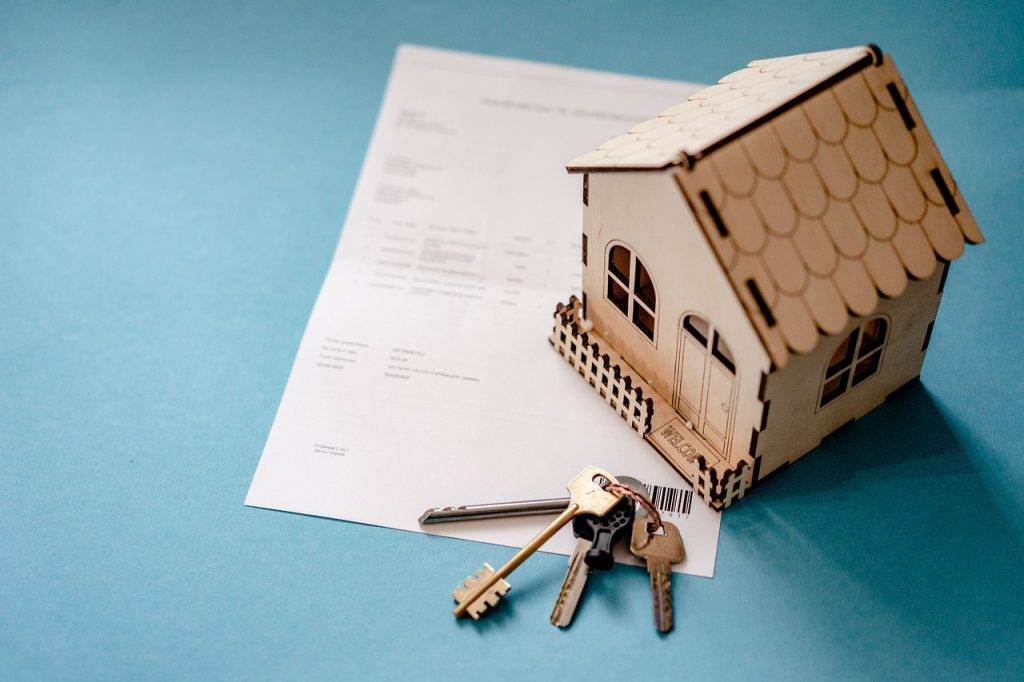When it comes to determining the value of a home, numerous factors come into play. However, there is one crucial aspect that surpasses all others in its influence on a property’s worth. The location of a home stands as the primary determining factor in assessing its value. A home’s surroundings, neighborhood amenities, school district, and proximity to essential services all contribute to its desirability and, subsequently, its market value. Understanding the significance of location is fundamental for both buyers and sellers in the real estate market.

This image is property of pixabay.com.
Location
The location of a home is undeniably one of the most crucial factors when determining its value. Proximity to amenities such as schools, shopping centers, parks, and recreational facilities can greatly enhance the desirability of a property. A home located in close proximity to these amenities offers convenience and can be particularly appealing to potential buyers or renters. Additionally, the reputation of the school district in which the home is located can significantly impact its value, as families often prioritize education for their children. Another aspect to consider is the overall condition of the neighborhood. A well-maintained and safe neighborhood with low crime rates will contribute positively to the value of a home. Lastly, easy access to public transportation or major highways can be a significant selling point for commuters or those seeking convenient travel options.
Size and Layout
The size and layout of a home also play a crucial role in determining its value. Total square footage is often a key consideration for homebuyers, as it directly impacts the overall livability and functionality of the space. Larger homes generally command higher prices, as they offer more room for families to comfortably reside in and provide additional storage options. The number of bedrooms and bathrooms is also important, as it directly influences the suitability of a home for potential buyers with specific needs or preferences. Furthermore, an open floor plan, where the main living areas flow seamlessly into one another, is highly sought after in modern home designs. This layout not only enhances the overall aesthetic appeal of the property, but it also creates a sense of spaciousness and allows for natural light to permeate throughout the living spaces.
Condition
The condition of a home can greatly impact its value, as it directly affects the cost of maintenance and repairs for potential homeowners. A well-maintained property that has been regularly updated and cared for typically commands a higher price, as it alleviates the concerns of immediate repairs or renovations for the buyer. Additionally, renovations and upgrades, such as updated kitchens, bathrooms, flooring, or energy-efficient fixtures, can significantly enhance the value of a home. It is also essential to assess the structural integrity of a home, including its foundation, walls, and roof, as any underlying issues in these areas can greatly impact the value and potentially incur substantial repair costs. Lastly, the presence of pests or mold can significantly devalue a property, as it raises concerns about health risks and the need for extensive remediation.
Age
The age of a home is an important factor in determining its value. New construction homes often command higher prices due to their modern design, updated features, and lack of immediate maintenance needs. These homes also often come with builder warranties, providing buyers with added peace of mind. On the other hand, historic homes can hold significant value due to their unique architectural styles, historical significance, and potential for restoration or renovation projects. However, age-related maintenance needs should also be carefully considered, as older homes may require more frequent repairs or updates, which can impact the overall value of the property.

This image is property of pixabay.com.
Curb Appeal
Curb appeal refers to the exterior appearance of a home and its surroundings, and it can greatly influence the value of a property. The exterior appearance of a home, including its siding, paint, windows, and roof, creates the first impression for potential buyers and impacts their perception of the property’s overall condition. A well-maintained and aesthetically pleasing external appearance can significantly enhance the desirability and value of a home. Landscaping also plays a crucial role in curb appeal, as a beautifully maintained garden, lush lawn, and well-manicured trees and shrubs can create an inviting and attractive ambiance. Additionally, the design of the home and its compatibility with the surrounding neighborhood can impact its value. Lastly, the presence of sidewalks and attractive street appeal can contribute positively to the overall desirability and value of a property.
Market Trends
The current supply and demand dynamics in the real estate market greatly influence the value of a home. If there is high demand for homes in a particular area but limited supply, prices are likely to increase due to the competition among buyers. Alternatively, if there is an oversupply of homes in a market with limited demand, prices may decrease as sellers compete to attract buyers. Appreciation rates, which measure the percentage increase in home values over time, are also critical in understanding market trends and predicting future value. A neighborhood or city with consistently high appreciation rates is generally more desirable and will likely lead to an increase in property values. Evaluating competing properties in the area can also offer insights into the value of a home, as it allows for a comparison of features, condition, and pricing.

This image is property of pixabay.com.
Local Economy
The local economy plays a significant role in determining the value of a home. Areas with robust job markets and a diverse range of job opportunities tend to attract more buyers and renters, translating into higher demand and increased property values. Conversely, areas with limited job opportunities or stagnant economic growth may experience lower demand, resulting in decreased property values. The level of income in the local community is also a relevant factor to consider, as it directly impacts the purchasing power of potential buyers and their ability to afford homes. A strong and growing local economy provides confidence and stability to homeowners, contributing positively to the value of their properties.
Property Taxes
Property taxes are an ongoing financial consideration for homeowners and can impact the overall value of a home. Tax rates vary from one jurisdiction to another, and higher tax rates can decrease the attractiveness and affordability of a property. It is essential for potential homeowners to research and understand the current tax rates in the area they are considering, as it directly affects their cost of ownership. The assessment value of a property, which determines the amount of taxes owed, is based on a variety of factors such as the size, location, and condition of the home. Higher assessment values typically result in higher property taxes.

Homeowner’s Association (HOA)
Many communities have homeowner’s associations (HOAs) that enforce certain restrictions, regulations, and maintain community amenities. Understanding the HOA fees associated with a property is important, as it adds to the overall cost of ownership. However, well-managed HOAs can contribute positively to the value of a home, as they often maintain the aesthetics, cleanliness, and functionality of the community. HOA-managed amenities such as pools, parks, and fitness centers can also enhance the desirability and value of a home, especially for families or individuals seeking a convenient and well-maintained living environment. It is crucial for potential homeowners to thoroughly review the rules and regulations set by the HOA to ensure they align with their lifestyle and preferences.
Energy Efficiency
Energy efficiency is an increasingly important factor in determining the value of a home. Insulation plays a significant role in the energy efficiency of a property, as it helps regulate temperature and reduce energy consumption. Homes with proper insulation are often more appealing to buyers, as they offer potential savings on heating and cooling costs. Energy-efficient appliances, such as refrigerators, dishwashers, and HVAC systems, not only reduce utility bills but also contribute to a greener and more sustainable lifestyle. The presence of solar panels can further enhance the energy efficiency of a home, as they generate clean and renewable energy, reducing dependence on traditional power sources. Water-saving fixtures, such as low-flow toilets and showerheads, not only conserve water but also appeal to environmentally-conscious buyers. Homes with strong energy efficiency features can command higher values due to their long-term cost savings and reduced environmental impact.
In conclusion, the value of a home is influenced by a multitude of factors. Location, size, condition, age, curb appeal, market trends, local economy, property taxes, homeowner’s association, and energy efficiency all play vital roles in determining the value of a property. Prospective homeowners should carefully consider these factors when evaluating a home’s worth, as they provide a comprehensive understanding of the property’s desirability, functionality, and long-term investment potential.
